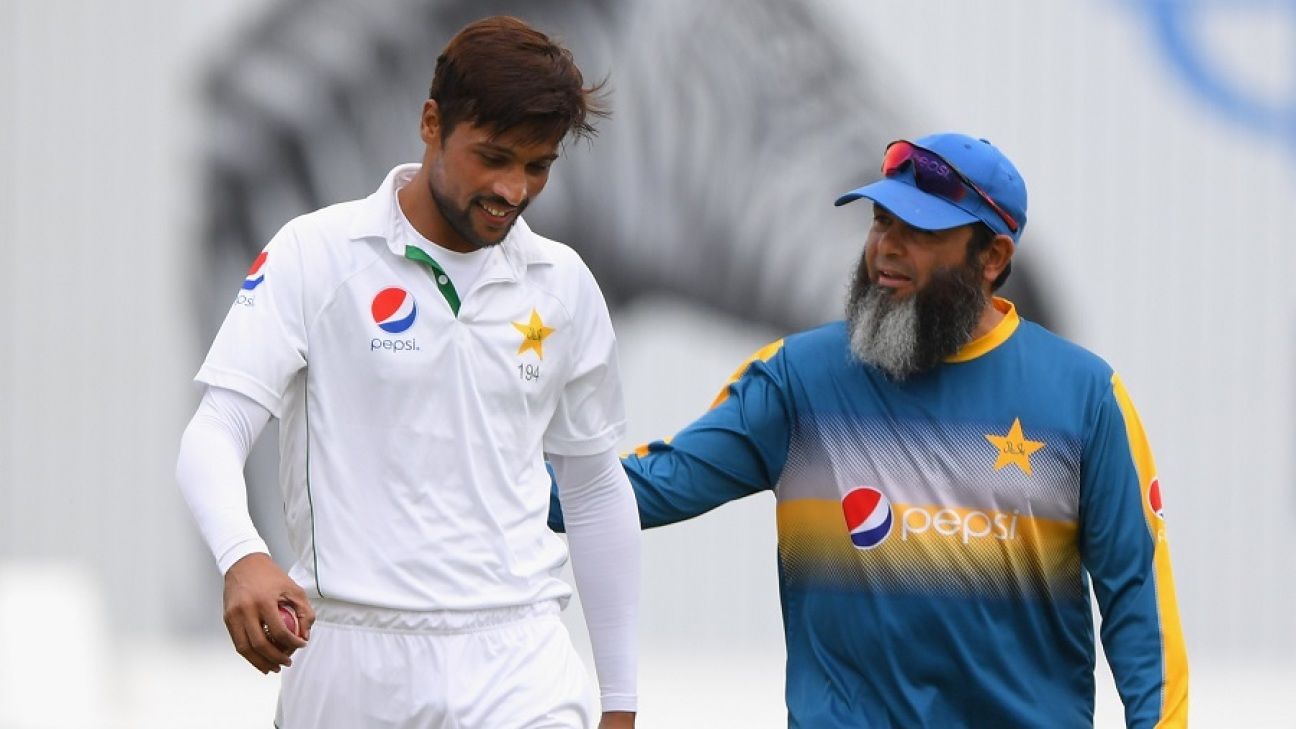Mushtaq Ahmed said it would require clear communication and tactful management to ensure Pakistan’s high-profile coaching team worked smoothly with the players on the team’s upcoming tour of England. The former Pakistan legspinner has been brought in as spin bowling coach, one of two big-name appointments for the England tour, the other being Younis Khan as batting coach.
This is the first time since Bob Woolmer’s appointment as head coach in 2004 that Pakistan is travelling with a fully Pakistani backroom staff. The reasons why the PCB had wanted to avoid an all-local environment in that time included internal politics, trust deficits, and infighting that plagued the side in the late 1990s and early 2000s. Besides, the lack of professionally qualified coaches in Pakistan meant the local options were limited.
“We all are on the same page with a clear-cut predefined role,” Mushtaq said. “Misbah is our head coach. Younis is going to deal with batsmen as consultant, Waqar [Younis] will be working with the bowlers, and I am doing mentoring and working with spinners. So all of us from the same generation who played modern-day cricket are coming together to work for Pakistan. The problem will arise when there is a communication gap, [so] we have to look out to gel the team. If there is any conflict, it needs to be resolved there and then and move on. We have to play smart.
“We all are sensible people and this [combination] is going to work well. I have worked with big coaches and the biggest example is dealing with Andy [Flower] and KP (Kevin Pietersen). Both didn’t have the mutual understanding but England still won big games. I had a role there, I used to mentor KP and at the same time worked with Andy as well to manage the communication gap. So we (the Pakistan dressing room) shouldn’t allow that communication gap to create misunderstandings. We are very optimistic that we will all come together and graciously share our experiences and stay united on tour.”
Mushtaq also downplayed the perception that Younis does not get on with the PCB. “Younis Khan is a straightforward guy and people learn with the passage of time,” he said. “With age you learn a lot. Younis is a wonderful guy. Whenever you talk to him sensibly, he always responds positively. His work ethics are great and we give his example to youngsters to follow his lifestyle and how he manages his routines. He is a professional and has a tough mindset and we need people like him. He has the experience playing everywhere in the world in tough situations and coming out fighting against odds.
“His personality of being a tough guy is very useful for players going to England in the ongoing situation. Sometime mental toughness takes more weight than talking technique. With him (Younis) around in the dressing room, players will have a good role model in front of them.”
Mushtaq has been in the coaching business for over 10 years, starting in 2008 when he worked with the then England coach Peter Moores. He has since then established himself as a reputed spin-bowling consultant, and his time with the England side coincided with the best years of Graeme Swann, who ended up becoming one of England’s greatest spinners. He worked with spinners in Pakistan for several years following on from that, but it is believed his coaching style made players more dependent on the coach. Pakistan’s high-performance coach Nadeem Khan doesn’t want this to happen.
“In the 90s we didn’t have a lot of coaches and I always believed you were your best coach,” Nadeem said. “When you analyse yourself on your own, you have a better prospect of becoming a good player quickly. These days, [the amount of] cricket has increased drastically and players don’t have time to keep a balance between playing matches, fitness [work] and updating themselves with information.
“They are playing all formats and are fully engaged series after series. We had more time in the nets on our own, and with less cricket, we had ample recovery time. But in today’s cricket players need coaches, expert coaches to manage [their workload]. Teams these days take a bigger pool of coaches and consultants, and sometimes the support staff easily outnumbers the playing side in the dressing room.
“It’s very important to have a relationship with players and you have to take ownership. It’s about communication and a player needs help and information. I used to think that players needed to develop on their own, but they don’t have time to work on their own. They are not even properly enjoying the victories or learning from the failures because they are playing back-to-back cricket. This is exactly where the role of a coach comes in.”
